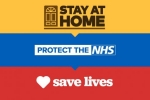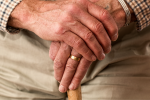
Myth: 5G mobile networks spread COVID-19
Viruses cannot travel on radio waves/mobile networks.COVID-19 is spreading in many countries that do not have 5G mobile networks.
COVID-19 is spread through respiratoatry droplets when an infected person coughs, sneezes or speaks. People can also be infected by touching a contaminated surface and then their eyes, mouth or nose.
Myth: Exposing yourself to the sun or to temperatures higher than 25C degrees prevents COVID-19
You can catch COVID-19, no matter how sunny or hot the weather is. Countries with hot weather have reported cases of COVID-19. To protect yourself, make sure you clean your hands frequently and thoroughly and avoid touching your eyes, mouth, and nose.
Myth: Catching COVID-19 means you will have it for life
Most of the people who catch COVID-19 can recover and eliminate the virus from their bodies. If you catch the disease, make sure you treat your symptoms. If you have cough, fever, and difficulty breathing, seek medical care early – but call your health facility by telephone first. Most patients recover thanks to supportive care.
Myth: Drinking alcohol protects you against COVID-19
Frequent or excessive alcohol consumption can increase your risk of health problems.
Myth: Taking a hot bath prevents COVID-19
Taking a hot bath will not prevent you from catching COVID-19. Your normal body temperature remains around 36.5°C to 37°C, regardless of the temperature of your bath or shower. Actually, taking a hot bath with extremely hot water can be harmful, as it can burn you. The best way to protect yourself against COVID-19 is by frequently cleaning your hands. By doing this you eliminate viruses that may be on your hands and avoid infection that could occur by then touching your eyes, mouth, and nose.
Myth: Rinsing your nose with saline helps prevent infection COVID-19
There is no evidence that regularly rinsing the nose with saline has protected people from infection with the new coronavirus.
Myth: COVID-19 only affects older people
People of all ages can be infected by coronavirus. Older people, and people with pre-existing medical conditions (such as asthma, diabetes, heart disease) appear to be more vulnerable to becoming severely ill with the virus. People of all ages to take steps to protect themselves from the virus, for example by following good hand hygiene and good respiratory hygiene.
Myth: Face masks will stop you getting sick, or face masks don’t work
Wearing a face mask is not an iron-clad guarantee that you won’t get sick – viruses can also transmit through the eyes and tiny viral particles, known as aerosols, can penetrate masks. However, masks are effective at capturing droplets, which is a main transmission route of coronavirus. If you are likely to be in close contact with someone infected, a mask cuts the chance of the disease being passed on. If you’re showing symptoms of coronavirus, or have been diagnosed, wearing a mask can also protect others. So masks are crucial for health and social care workers looking after patients and are also recommended for family members who need to care for someone who is ill – ideally both the patient and carer should have a mask. However, masks will probably make little difference if you’re just walking around town or taking a bus so there is no need to bulk-buy a huge supply.





